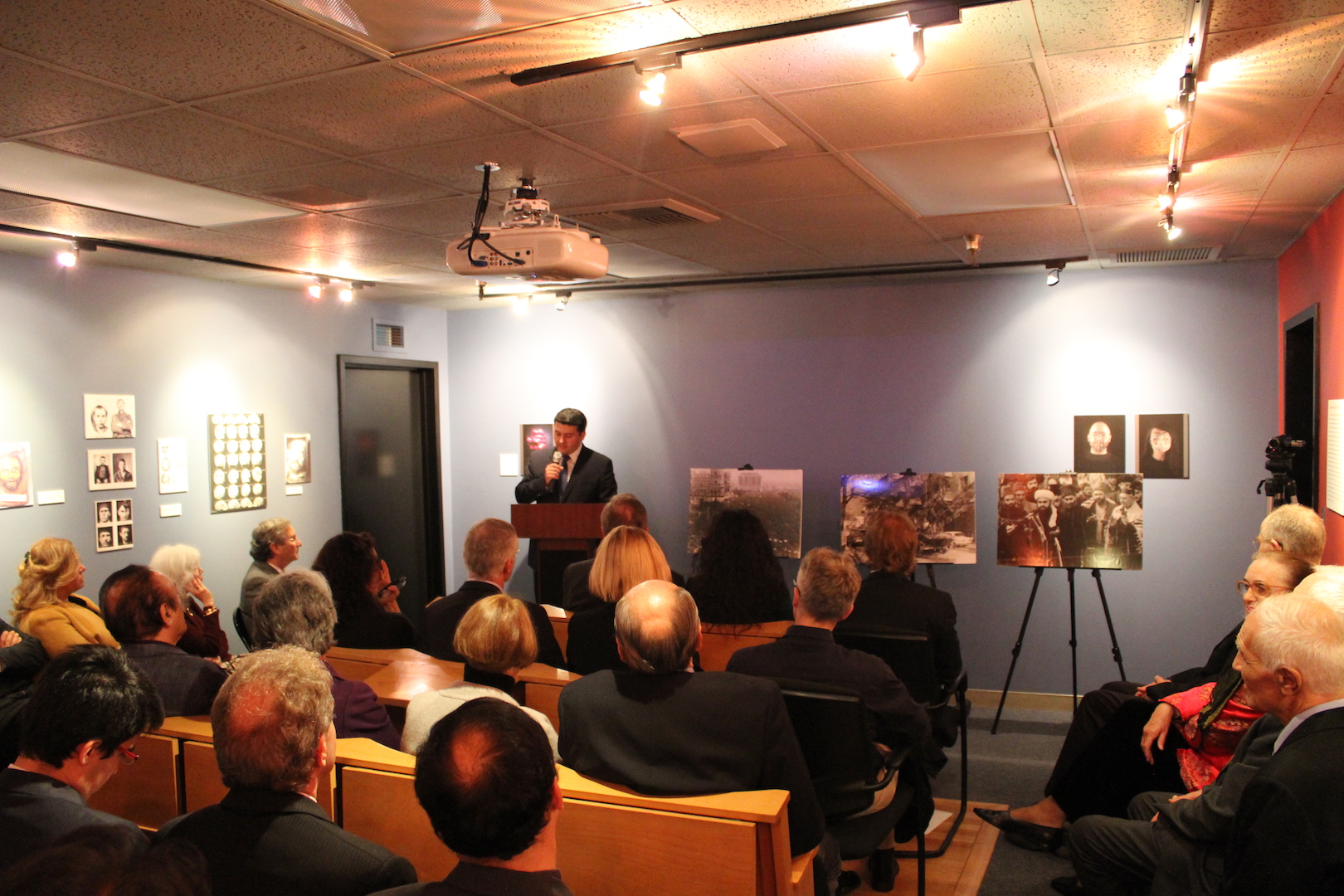Heroes of Black January tragedy remembered in Los Angeles

By Amina Nazarli
Azerbaijan’s Consulate General in Los Angeles held a commemorative event on January 19 to commemorate the 26th anniversary of the Black January tragedy. The event was jointly held with the Wende Museum. Specializing on the Cold War history and the Fall of the Berlin Wall, the Wende Museum is one of the most unique museums in the United States.
Held at the Museum, the event was attended by former U.S. co-chairman of the OSCE Minsk Group Ambassador Rudolph Perina, Los Angeles-based diplomats of various countries, representatives of academic and cultural institutions, community members and others.
At the outset, the event attendees paid tribute to the Black January martyrs with a moment of silence.
Welcoming the guests, the Museum’s Founder and Executive Director Justin Jampol expressed their satisfaction of hosting such an important memorial.
Addressing the event, Azerbaijan’s Consul General Nasimi Aghayev informed the participants about the Black January tragedy. He said: “On January 20, 1990, Azerbaijan's capital city of Baku was invaded by 26,000 Soviet troops, which, at the order of Mikhail Gorbachev and his Politburo, stormed the city and began shooting indiscriminately into the peaceful demonstrators. Hundreds of civilians were killed, including children, women and elderly; people of different ethnic and religious backgrounds, both Muslim, Christian and Jewish. And a thousand were wounded.”
“The pretext was a massive popular uprising in the capital, calling for Azerbaijan's independence from USSR: proof that the Soviet authorities were presiding over a collapsing empire, and that Azerbaijan was leading the fight for independence,” Aghayev continued.
“However, the brutal regime utterly failed. After the massacre, a million people - young and old, men and women, Muslims, Jews and Christians - filled the streets to mourn the victims, defying the curfew and showing national solidarity. Heydar Aliyev, who would later become president and founder of modern Azerbaijan, fiercely denounced the bloodshed. His defiance helped to inspire the Azerbaijani people and Aliyev became a leader of the struggle for liberty,” the Consul General noted. “A year and half later Azerbaijan restored its independence.”
“What was the reaction in the West to Black January? The Nobel Peace Prize for Gorbachev! 10 months after the massacre, the Nobel Committee awarded Michael Gorbachev the Nobel Peace Prize. The Committee justified its position by stressing Gorbachev’s “leading role in the peace process” and his “many and decisive contributions” to peace. The Committee and its supporters decided to be oblivious to many egregious crimes Gorbachev committed, which had nothing to do with the notion of peace. Ironically, Alfred Nobel would not have been able to establish his Nobel Prize in 1901, had it not been the immense fortune he and his brothers made with oil development in Baku. And Alfred Nobel would not have been able to even dream that his Prize would one day be awarded to a man who turned the very city of Baku into a bloodbath,” Aghayev said.
“Since the restoration of independence, Azerbaijan has gone from strength to strength. Under the visionary leadership of President Ilham Aliyev, Azerbaijan has become an island of stability in an otherwise unstable region, and an important geopolitical power. Azerbaijan is the centerpiece of the Caspian oil and gas developments, vital for global energy security, as well as other regional megaprojects. Today, Azerbaijan's freedom is solid and irreversible, and we always remember the victims of the Black January tragedy – the true heroes of our national liberation,” the Consul General concluded.
Speaking at the event, former U.S. diplomat Dr. James Coyle of the Chapman University highlighted the role of Black January in the eventual collapse of the USSR, calling this tragedy the “beginning of the end of the Soviet Union.”
Following the speeches, a short documentary on Black January prepared by Azerbaijan’s Consulate General, as well as a CNN report on the massacre were shown.
The event concluded with the classical music performance.
--
Amina Nazarli is AzerNews’ staff journalist, follow her on
Twitter: @amina_nazarli
Follow us on Twitter @AzerNewsAz
